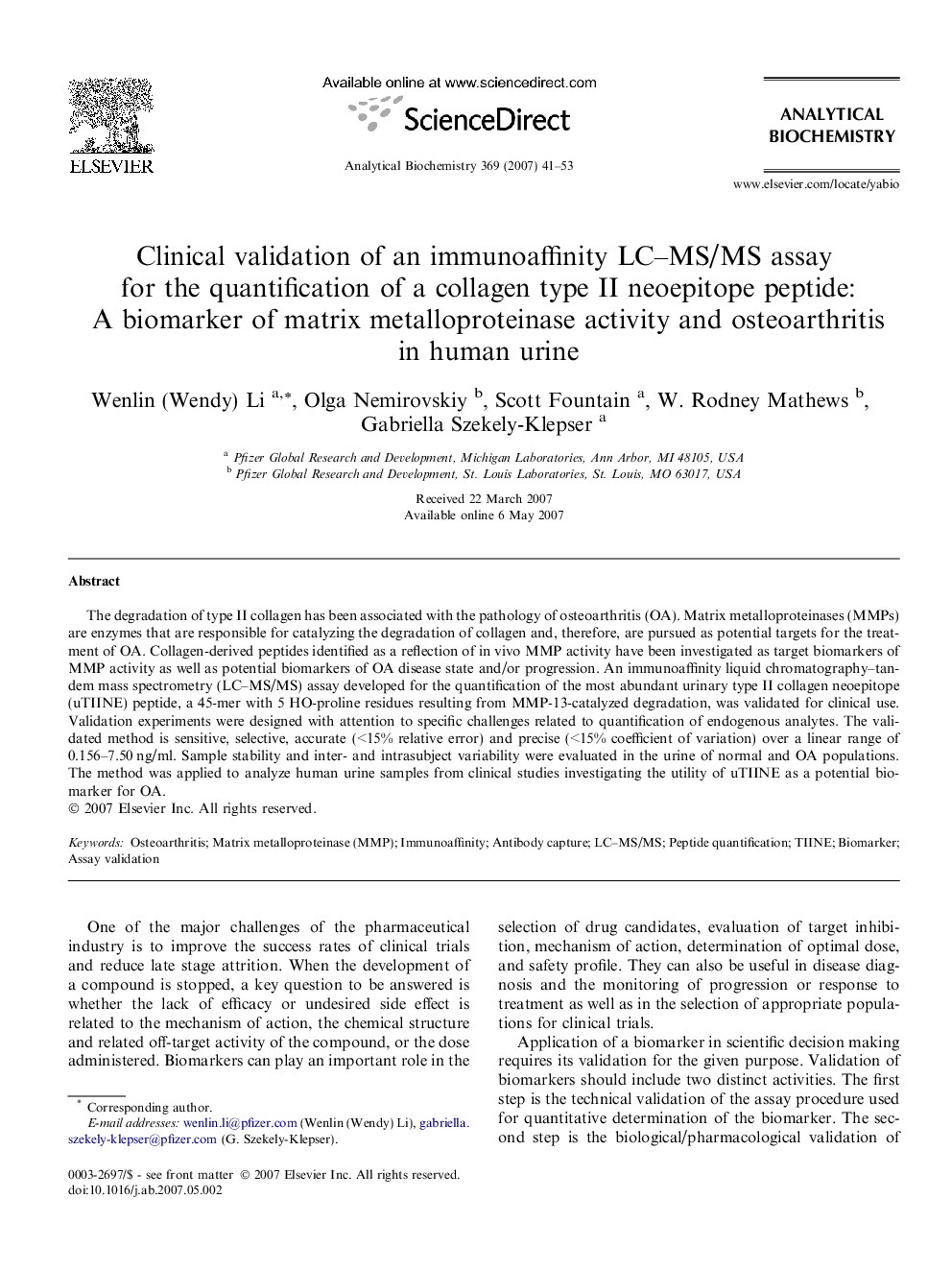| Article ID | Journal | Published Year | Pages | File Type |
|---|---|---|---|---|
| 1175814 | Analytical Biochemistry | 2007 | 13 Pages |
The degradation of type II collagen has been associated with the pathology of osteoarthritis (OA). Matrix metalloproteinases (MMPs) are enzymes that are responsible for catalyzing the degradation of collagen and, therefore, are pursued as potential targets for the treatment of OA. Collagen-derived peptides identified as a reflection of in vivo MMP activity have been investigated as target biomarkers of MMP activity as well as potential biomarkers of OA disease state and/or progression. An immunoaffinity liquid chromatography–tandem mass spectrometry (LC–MS/MS) assay developed for the quantification of the most abundant urinary type II collagen neoepitope (uTIINE) peptide, a 45-mer with 5 HO-proline residues resulting from MMP-13-catalyzed degradation, was validated for clinical use. Validation experiments were designed with attention to specific challenges related to quantification of endogenous analytes. The validated method is sensitive, selective, accurate (<15% relative error) and precise (<15% coefficient of variation) over a linear range of 0.156–7.50 ng/ml. Sample stability and inter- and intrasubject variability were evaluated in the urine of normal and OA populations. The method was applied to analyze human urine samples from clinical studies investigating the utility of uTIINE as a potential biomarker for OA.
